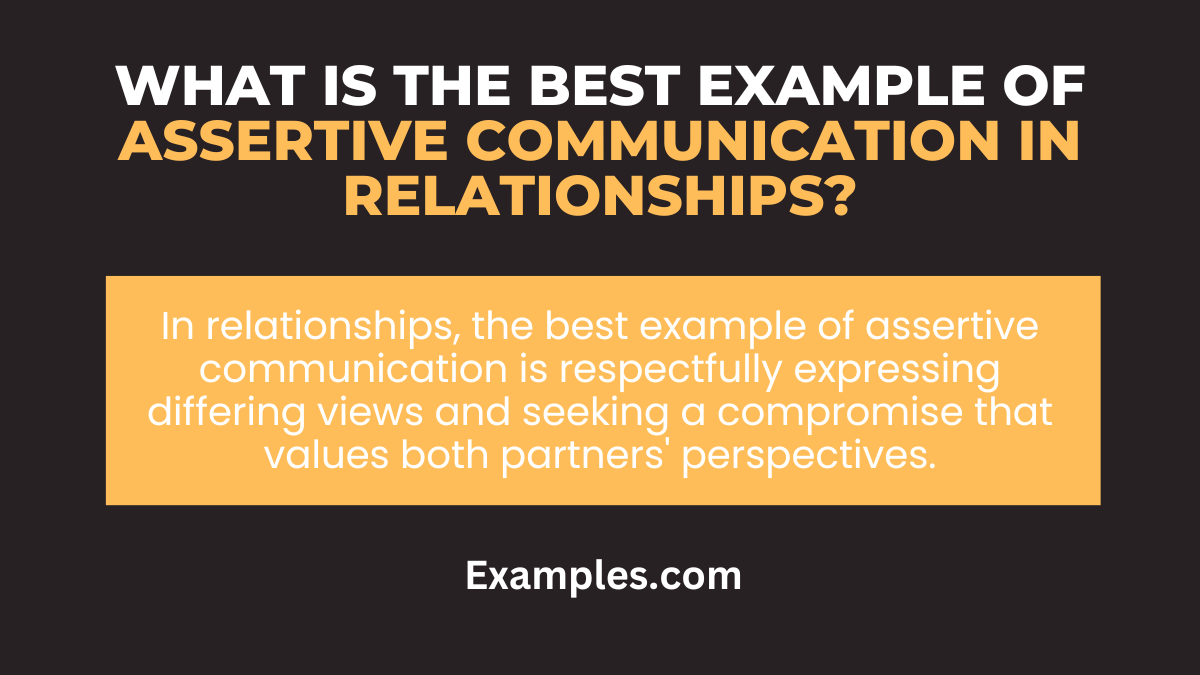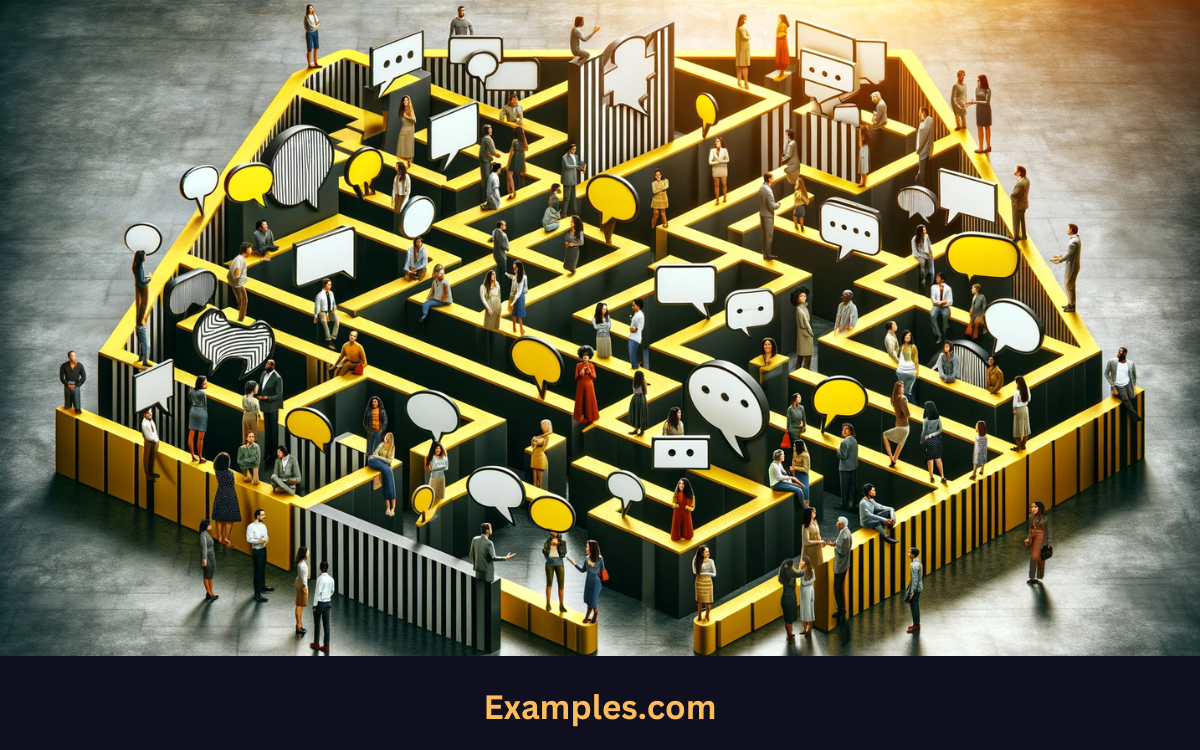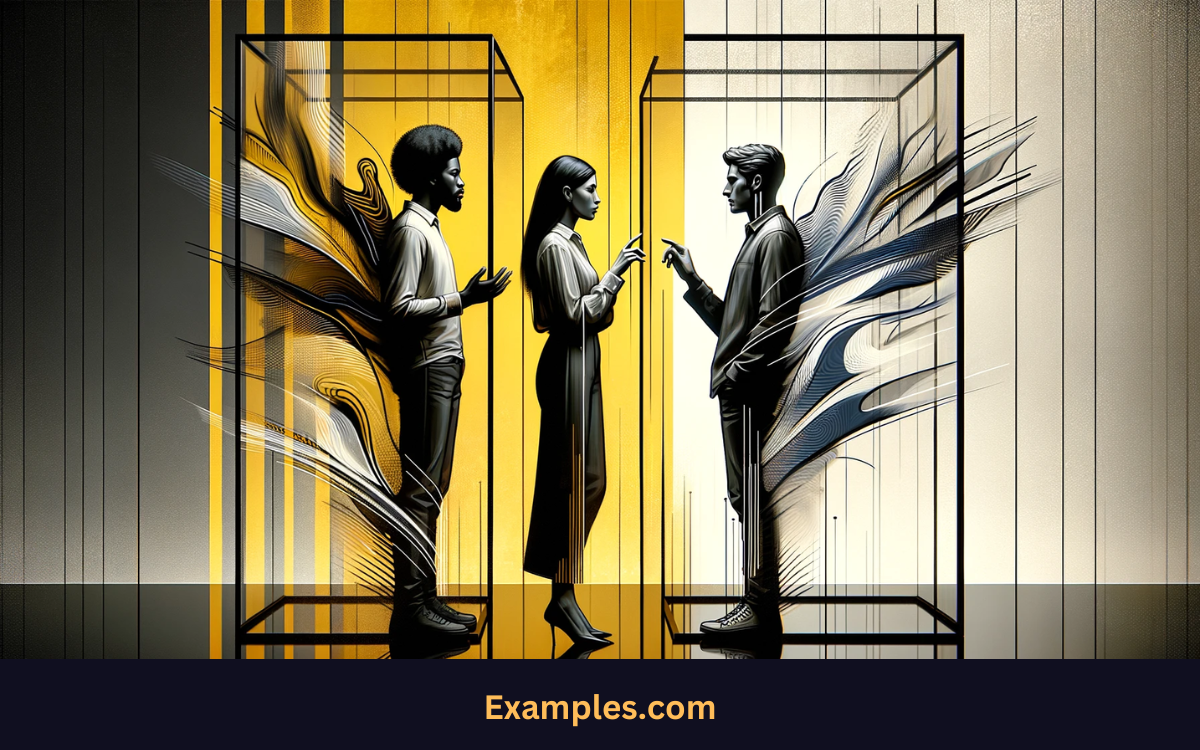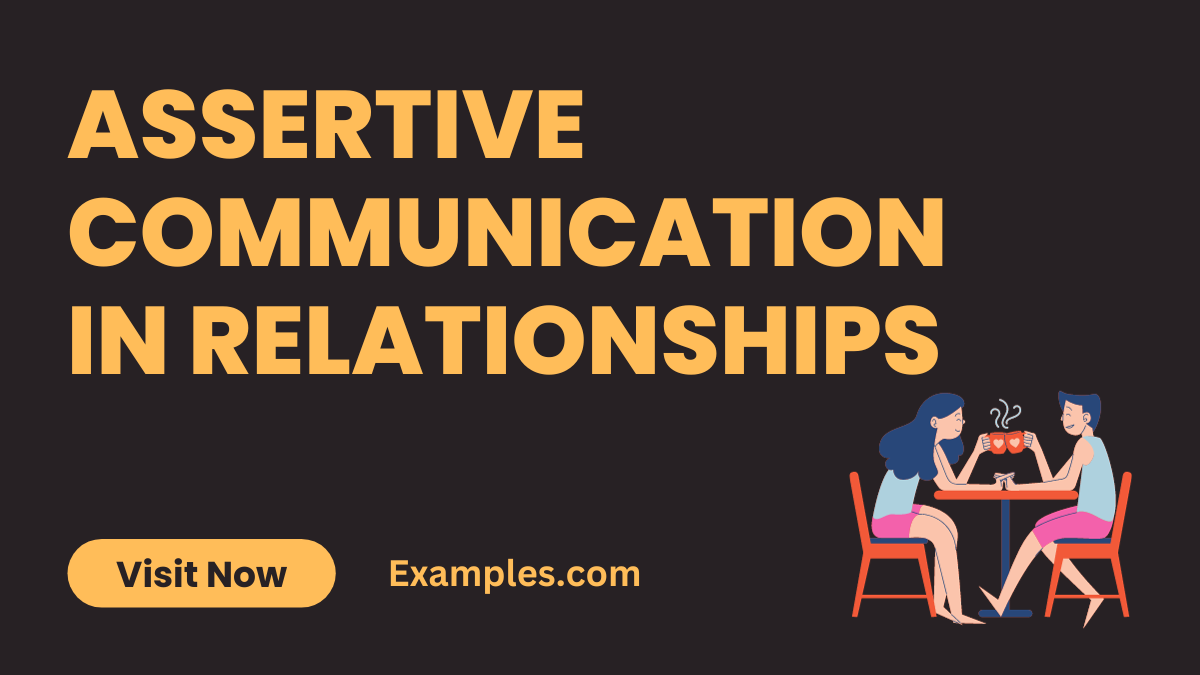19+ Assertive Communication in Relationships Examples
Assertive communication is a vital skill in maintaining healthy relationships, particularly in the realm of oral communication. This comprehensive guide offers practical examples, illuminating how couples can express themselves assertively without conflict. It’s designed to enhance communication skills, promoting understanding and respect in relationships. These examples demonstrate effective strategies for asserting needs and feelings, ensuring that both partners feel heard and valued. Ideal for anyone looking to improve their interpersonal communication, this guide is a resource for nurturing stronger, more harmonious relationships.
What is Assertive Communication in Relationships?

Assertive communication in relationships is about expressing one’s thoughts, feelings, and needs in a direct yet respectful manner. It involves clear, honest, and empathetic dialogue that respects both parties’ perspectives. Unlike passive or aggressive communication, assertiveness is about finding a balanced way to respect one’s own needs while also considering the needs of the partner. This communication style is essential for building trust, understanding, and mutual respect in any relationship.
What is the Best Example of Assertive Communication in Relationships?

The best example of assertive communication in relationships might be handling disagreements. For instance, when a couple disagrees on a decision, an assertive approach would be one partner saying, “I understand your point of view, but I feel differently. Can we find a compromise that respects both of our perspectives?” This approach shows respect for the other’s opinion while also clearly and respectfully expressing their own viewpoint. It’s about open and honest communication, aiming for a solution that works for both, demonstrating the importance of balance and mutual respect in relationships.
20 Assertive Communication in Relationship Examples

Embark on a journey through 20 unique examples of assertive communication in relationships, enhancing your oral communication and interpersonal skills. These examples demonstrate how to express feelings, needs, and opinions in a respectful, direct manner. From resolving conflicts to expressing love and concern, each scenario is designed to strengthen understanding and empathy between partners. This SEO and NLP-friendly guide is rich in keywords like effective communication, empathetic communication, and conflict resolution, making it an invaluable resource for couples striving to build stronger, healthier relationships.
- Discussing Uncomfortable Topics:
Approach sensitive subjects with honesty and sensitivity.
Example: “I feel uneasy about this topic, but it’s important we talk about it. Can we discuss this openly?” - Setting Boundaries in the Relationship:
Clearly state personal limits and respect each other’s boundaries.
Example: “I need some personal space at times. Can we agree on boundaries that work for both of us?” - Expressing Disagreement Respectfully:
Disagree without disrespect or aggression.
Example: “I understand your point, but I see things differently. Let’s try to find common ground.” - Asking for Support:
Express the need for support without sounding demanding.
Example: “I’m going through a tough time and could really use your support. Can we talk?” - Giving Constructive Feedback:
Offer feedback in a way that is helpful, not hurtful.
Example: “I appreciate what you did there, but maybe next time we could try this instead.” - Expressing Appreciation:
Regularly acknowledge and appreciate each other’s efforts.
Example: “I really appreciate how you handled that situation. It meant a lot to me.” - Negotiating Compromises:
Find a middle ground in disagreements.
Example: “I know we both have different views. Let’s find a compromise that suits us both.” - Handling Criticism Constructively:
Respond to criticism without becoming defensive.
Example: “I hear your concerns. Let’s discuss how I can improve on this.” - Sharing Personal Aspirations:
Communicate personal goals and dreams openly.
Example: “I have some goals I’m really passionate about. I’d love to share them with you.”

- Addressing Financial Concerns:
Discuss financial matters candidly and respectfully.
Example: “Let’s talk about our finances and plan together for our future needs.” - Discussing Future Plans:
Share thoughts on future plans while considering each other’s views.
Example: “I’ve been thinking about our future and would love to hear your thoughts too.” - Handling Jealousy:
Address feelings of jealousy in a calm, honest way.
Example: “I felt a bit jealous when I saw you with them. Can we talk about it?” - Navigating Social Commitments:
Discuss and agree on social commitments together.
Example: “Before we commit to the event, let’s make sure we’re both comfortable with it.”

- Balancing Individuality and Togetherness:
Communicate the need for personal space while valuing the relationship.
Example: “I value our time together, but I also need some time for myself. Let’s find a balance.” - Dealing with Relationship Changes:
Talk openly about changes in the relationship.
Example: “I feel like things between us are changing. Can we discuss this openly?” - Expressing Emotional Needs:
Clearly articulate emotional needs and desires.
Example: “I need more emotional support from you. Can we work on that together?” - Managing Relationship Expectations:
Discuss and align expectations in the relationship.
Example: “Let’s talk about what we both expect from our relationship to avoid misunderstandings.”

- Confronting Unhealthy Habits:
Address unhealthy habits in the relationship constructively.
Example: “I’m concerned about some habits we’ve developed. Let’s try to work on them together.” - Planning for Major Decisions:
Collaborate on major life decisions.
Example: “Before we make this big decision, let’s discuss it thoroughly to make sure we’re both on board.” - Resolving Misunderstandings:
Clear up misunderstandings promptly and respectfully.
Example: “I think there’s been a misunderstanding about what I said earlier. Can we clarify it together?”
How do you Practice Assertive Communication in Relationship?
- Use “I” Statements: Start sentences with “I” to express your feelings without blaming your partner, enhancing effective communication.
- Listen Actively: Show empathy by actively listening to your partner, fostering empathetic communication.
- Maintain Eye Contact: Eye contact signifies sincerity and confidence in assertive communication.
- Express Needs Clearly: Clearly articulate your needs and desires, a key aspect of interpersonal communication.
- Stay Calm and Respectful: Keep a calm demeanor to maintain effective communication even in disagreements.
- Acknowledge Your Partner’s Perspective: Recognize and validate your partner’s feelings, crucial in empathetic communication.
- Practice Nonverbal Cues: Use appropriate nonverbal communication to reinforce your verbal messages.
- Set Boundaries: Clearly define and respect boundaries, an important aspect of assertive communication in relationships.
Importance of Assertive Communication in Relationships
- Builds Mutual Respect: Assertiveness establishes a foundation of respect, crucial in interpersonal communication.
- Enhances Understanding: Promotes better understanding, a key component of effective communication in relationships.
- Prevents Resentment: Clear communication prevents the buildup of resentment, strengthening empathetic communication.
- Promotes Honesty: Encourages honesty and openness, vital for effective communication.
- Fosters Trust: Trust is built through consistent and clear assertive communication.
- Improves Conflict Resolution: Enhances the ability to resolve conflicts, a critical skill in interpersonal communication.
- Encourages Emotional Expression: Allows partners to express their emotions safely, vital for empathetic communication.
- Strengthens the Relationship: Overall, assertiveness strengthens the bond, a key goal of effective communication in partnerships.
Assertive communication is essential in fostering healthy, respectful relationships. This guide, enriched with practical examples and strategies, empowers individuals to communicate effectively and empathetically. Embracing assertiveness enhances mutual understanding, trust, and conflict resolution, laying the foundation for stronger, more fulfilling relationships. It’s a valuable skill set for nurturing lasting connections and achieving relational harmony.
The article on Examples.com about assertive communication in relationships emphasizes the significance of clear, honest, and empathetic dialogue for building trust, understanding, and mutual respect. It provides a comprehensive guide with examples demonstrating how couples can express feelings, needs, and opinions assertively and respectfully. The guide covers topics like discussing uncomfortable topics, setting boundaries, and expressing disagreement, all aimed at enhancing oral communication and interpersonal skills in relationships.
In conclusion, to further enrich your understanding and practice of assertive communication in relationships, exploring additional resources can be beneficial. The Gottman Institute offers insightful articles and resources on building healthy communication in relationships (The Gottman Institute). Another valuable resource is the American Psychological Association, which provides a wide range of articles and tips on communication and relationship health (APA Resources).
These external links can provide deeper insights and practical tips to complement the information found in the article, further aiding individuals and couples in developing and maintaining assertive communication in their relationships



